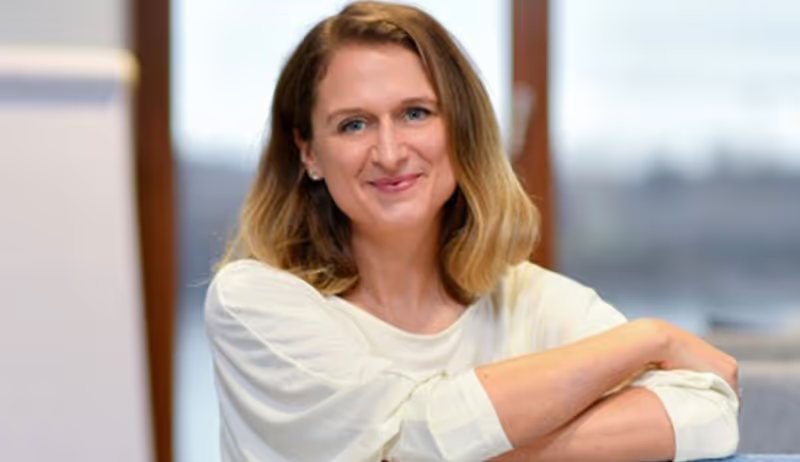
We recently had a chat with Jana about her experience with her Life Coach Certification and the transformations she has been able to see in her clients.
During many years of seeking, Jana shaped her genuine reasons for being. Her journey is painted in all colors of life:From the light color of new knowledge, skills and self-discovery, to the shades of confusion and disorientation up to the clear range of colors that comes with conscious transformation.On this Life Coach Certification journey she experienced the ignition for self-actualization lying in genuine connection – to ourselves and each other.We recently had a chat with Jana about her experience of being a coach and the transformations she has been able to see in her clients.
1. When and why did you decide to become a coach?
My purpose was always somehow bound to “people and connection“. In 2011, I came across an education [course] for systemic coaching. I never felt as much in my essence before as during that course! Afterwards, I coached within my profession, e.g. as change manager. It wasn’t until I decided to be coached in 2019 that I gave myself permission to be proud of my purpose. Now I am proud to say: I am a coach.
2. What’s something people seem to misunderstand about you when you tell them you are a coach?
Some people tend to shut down a bit when they hear that I am a coach, as they fear that I will start to analyze them. I am not looking for weaknesses in people to find something to fix. Instead, I steadfastly believe in their capability to become the creator of their life.Stepping out of the victim role and starting to consciously develop one's own life is a capability we all have. We just did not necessarily learn how to unfold it. With healthy basic beliefs concerning our own worthiness and self-confidence, this capability is trained - like a muscle. With difficult basic beliefs, the muscle is untrained.Thus, part of my coaching is to strongly believe in my clients and hold that space for them so that they themselves can take time and practice to “train that muscle“ on our journey. And I love that part of my job. I love to see how people thrive when you believe in them!
3. Please describe your coaching approach.
I support my clients by seeking out their pathway into the life that is truly theirs. We discover the existing pieces of their genuine “reason for being“ in their life so far.Also, we shape their identity and their authentic vision of life. We define the aligning action steps and develop their permission for themselves to indeed follow through.
4. What is one thing your coaching approach did for your client that you didn’t expect?
Consciousness transforms concerns into confidence and connects us to our own creative power. Though my clients often don’t know it, not being conscious about themselves makes them blind in relation to their location on their map of life. They become disorientated and in a way, “blind". Thus, they start to live out of a concern and often even an anxious perception.While working with my clients, I understood that the more they become conscious about who they are, what they want, and also how they haven been self-sabotaging themselves, the more they see themselves on the life-map, where they want to get [to] and even more: they can see the route again!I observed that their perception of life shifts step by step from one that is concerned to a confident one: self-consciousness also means knowing where you can rely on yourself. It means knowing your true values and being able to act from integrity.Being reliable to yourself and securing your own integrity again are aspects that grow self-confidence. Again, with self-confidence, you unlock the main ingredient of a confident perception of life, as you believe in the person that spends 24/7 with you - yourself. And by feeling self-confidence and confidence in life, you dare to believe in your own power to create life. This is not done in no time - but the journey is unforgettable and the reward is truly life-changing.
5. Who are your coaching clients, and what challenges do they usually bring to your coaching?
They miss the compass from their genuine identity. Additionally, they have habits stopping them from taking the initiative to change their life-situation. Thus, they are losing the grip on their life development — only reacting to external circumstances, not creating things from free will.
6. What’s one thing you wish you had known when you became a coach?
You won’t become your best version of a coach until you yourself undergo coaching.
7. What is your biggest failure, and what did you learn from it?
After quitting my job in the corporate world, I rushed into a new life in Australia. I didn’t take the time to first shape my true identity. Due to this fragile foundation, my new life collapsed. If you fail to find yourself, you will find yourself failing.





